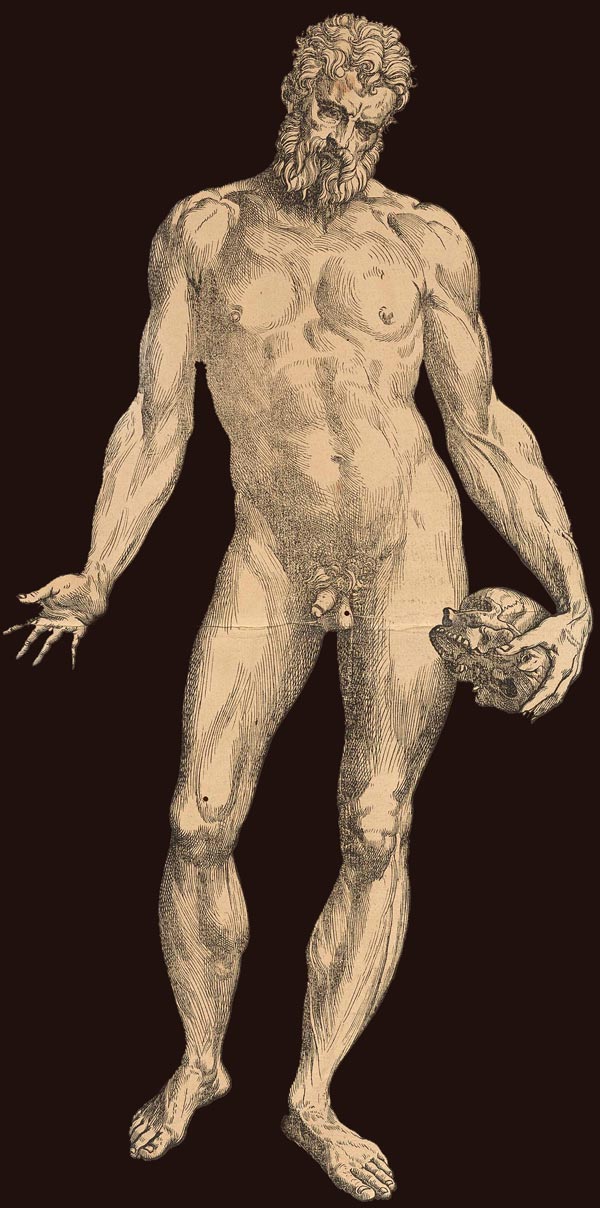The Hippocratic corpus is an eclectic collection of around sixty medical treatises attributed to Hippocrates of Cos (5th c. BC). These works share a commitment to rational medicine, relying on observation of the natural world and rejecting the idea that magic and supernatural agencies had any influence on the causation and treatment of diseases.
Originally discussed in the Hippocratic treatise On the Nature of Man, the theory of the four humors became the foundation of Greek medicine. It described a system of four fluids organizing the physiological map of the human body: blood, phlegm, and yellow and black bile. Health depended on the equilibrium between these humors, whereas the predominance of one of them caused disease. This theory was also connected to a long tradition of medical diagnosis and treatment. For instance, the technique of linking the color of urine to a particular disease (uroscopy) was perhaps one of most popular forms of diagnosis; as a treatment, bloodletting (phlebotomy) was designed to extract corrupt matter from the body.


